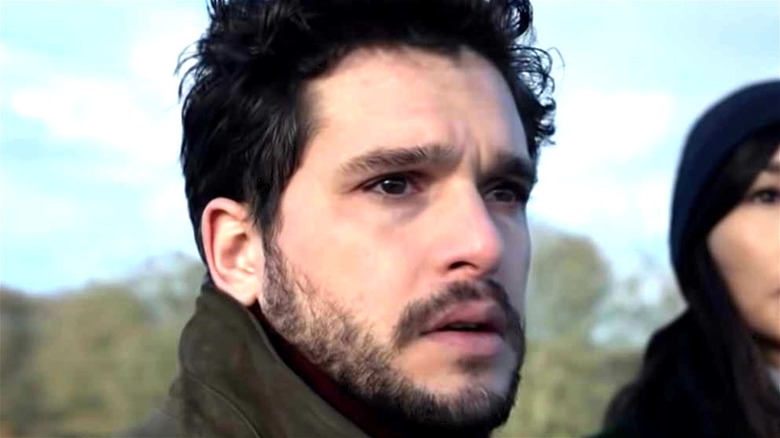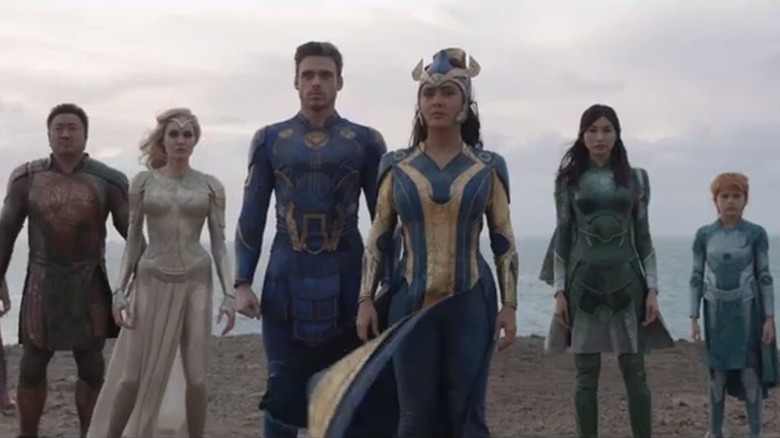Eternals Director Opens Up More About Why The Team Didn't Interfere In Thanos' Plan
Soon, the upcoming Marvel Cinematic Universe film "Eternals" will introduce audiences to its titular team of cosmic superheroes. In their comic book source material, the Eternals are superbeings of sorts, brought into existence by a group called the Celestials, who are responsible for creating for all life in the universe. The "Eternals" film will feature, for the first time in the MCU, characters like the Black Knight (Kit Harrington), Makkari (Lauren Ridloff), Sersi (Gemma Chan), and Thena (Angelina Jolie), among others, all of whom — save for Harrington's Black Knight — are ancient, deity-like heroes.
"Eternals" will reveal that not only is there a new group of comically powerful superheroes in town, but they've existed for virtually the entirety of the MCU timeline thus far. This has caused some fans to question why they never intervened in world-threatening conflicts, like the one where Thanos (Josh Brolin) killed off half the universe's population.
The film's final trailer directly addresses this line of questioning, providing some insight into their decision to remain in the background even amidst world-threatening calamity. In a recent interview with Fandango, "Eternals" director Chloé Zhao shed further light on this aspect of the team's story.
The Eternals only become active to fight the Deviants
Though Fandango writer Erik Davis didn't ask her directly about it, Chloé Zhao nevertheless provided some insight into the Eternals' decision to sit out the Thanos conflict in response to a question asking her to explain the superhero group for unfamiliar readers. "We like to call them Earth's original superheroes," Zhao said. "So, they were instructed to stand on the sideline once the Deviants were gone to allow humans to develop and progress in the way that we were meant to...and that ultimately led us to someone like Tony [Stark]."
In summation, a yet-unnamed entity explicitly ordered the Eternals to never intervene in human affairs such that significant human developments, like Tony Stark's invention of the Iron Man suit technology, might occur naturally. Presuming the MCU doesn't shake up established comic book canon, these orders most likely came from the Celestials, given that they're the one group of superbeings that preceded the Eternals.
Zhao explains that in the present timeline of "Eternals," which takes place after the events of "Avengers: Endgame," the Deviants — the Eternals' arch nemeses — have returned. Likewise, the Eternals must also deal with the fallout from Thanos' snap in "Endgame," which Zhao described as akin to an ecological event. "Between that ecological implication and the sudden mysterious return of the Deviants," she said, "it's time for the Eternals to get back to work."
"Eternals" will premiere in theaters on November 5.

